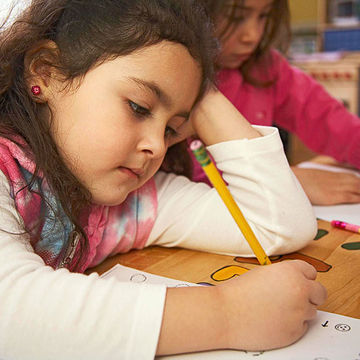
Reading: Establish routines With your kids at all ages
My husband and I started reading books with our children when all they could do was sit in their baby seats and stare. As the months passed, they came to know those books and loved to hear one of their favorites ` or a new one ` read to them over and over.
Once our children graduated from basic picture books to simple stories (at around age two), we would often choose books that had a moral or ethical message, and we would discuss that message with our kids while we read the book. We looked for stories that exemplified our favorite themes: restraint, respect, and sensitivity. The books enabled us to show our kids that we were not the only ones interested in these values. Likewise, we were careful to steer clear of stories that seemed to condone the opposite of those qualities ` namely entitlement, insolence, and insensitivity. Surprisingly, many books on the market provide models for unattractive behavior, and you should be careful to steer clear of these.
Books are also a perfect way to work through an issue your child may be having, whether it`s a behavioral problem, a fear, or a specific situation she is encountering. You can effectively use books as a jumping off point for discussing emotional topics and problem-solving (sometimes called biblio-therapy). Likewise, the right book can help prepare your child for an upcoming event or milestone, such as toilet training attending school for the first time, going on trip, or a new baby in the family. When children read about how others negotiate life`s challenges, it provides them with encouragement.
Of course, make sure the books you choose are age-appropriate. I often see parents reading books that are far too complex, including picture books with too much clutter on a page for a baby to take in, or a story book with text too dense for a three-year-old who loses interest. When you choose chapter books, a general rule of thumb is to look for books where the main character is approximately the same age as you child.
You should read with your children with enthusiasm and heart; do not treat it as a rote chore. Reading provides an opportunity for physical closeness with a baby on your lap or an older child snuggled up next to you. To engage with your child, stop and ask question, point out themes and morals, and ask for input about how characters might be feeling. Some of the most wonderful interactions I have had with my children have been during our reading together.
Reading with your children costs nothing, but it`s priceless. Read with your children every day. It`s`` as simple as that.
` Starting Early
Many people don`t think about reading to babies, but parents should engage infants interactively to foster language development. Show them the pictures, point to different objects on the page, and say the words. In a short time, you`ll be able to ask your baby, `Where is the car`` and she`ll be able to point to the picture of the car. Bring books to life by acting out what`s happening on the page with your baby (e.g., clap her hands together) and enhance with sounds (e.g., animal noises and sound effects, such as `whoosh`). Babies can even begin to learn when to turn pages of their favourite board books.
By about the age of eighteen months or two years, your children will know some parts of their favorite books (particularly simple rhyming books) by heart, and you can begin teaching them to read. My husband or I would sit with one of our kids on our lap and read a book while we pointed to the words. When we`d reach the end of a sentence, we`d stop before the last word and just point. Our kids usually knew the word, and soon they could read it. As is the case with many skills, kids can learn by doing much sooner than they can master the abstract concepts. Teaching kids to read early can give them a real confidence boost as well, because belief follows behavior. Get them to read early; the experience promotes bonding with you and will attach them to reading for life.
As They Grow
Just because your child might not need a bedtime story anymore, doesn`t mean that you shouldn`t continue to read together. Our children still read with us into their teen years, alternating with us as they reader out loud. If you keep the tradition going ` classic, popular series, non-fiction, or even newspaper or magazine article ` this bonding experience doesn`t have to end.
QUESTIONS FOR REFLECTION
- Do I read with my children every day`
- Do I choose books that impart values and behaviors that I want to instill`
- On what topics might I employ books to help my children through life`s challenges`
Source: 52 Weeks of Parenting Wisdom by Meg Akabas

